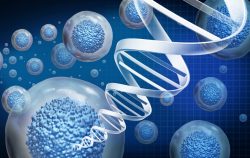 Cellular reprogramming is a goal of regenerative medicine. It can be used to replace damaged or sick cells with a cell that is healthy. New research has now discovered improvements for the efficiency of cellular reprogramming which has great potential in cellular repair therapy.
Cellular reprogramming is a goal of regenerative medicine. It can be used to replace damaged or sick cells with a cell that is healthy. New research has now discovered improvements for the efficiency of cellular reprogramming which has great potential in cellular repair therapy.
It has been known that adult cells can only duplicate into the same cell type, thus, limiting adult cell therapy. The new discovery has found that embryo cells have the capability to multiply all cell types in our body. This is called totipotency and researchers have found it to be an inspiration in finding new ways to repeat totipotency in the lab by using cellular reprogramming.
Totipotent cells are still a mystery as to their properties, which are not all known yet. And this research made a new discovery about them. From being the mother cells of stem cells, the pace at which DNA replication occurs in them is different in comparison to cells that are more differentiated. It was shown to be much slower.
The researchers now asked if they can change the speed of DNA replication could they then improve the reprogramming of them into totipotent cells? Totipotent cells have been studied for years hoping to discover how nature has made them capable of producing all cell types in our bodies.
In an exceptional experimental achievement, they did observe that slowing down the DNA replication speed did increase reprogramming efficiency. They had slowed down the DNA replication speed by limiting the substrate that the cells use for DNA synthesis.
It was an amazing discovery. It is considered a huge advancement for stem cell therapy and a fundamental strategy of future research in regenerative medicine.
To view the original scientific study click below:
DNA replication fork speed underlies cell fate changes and promotes reprogramming





